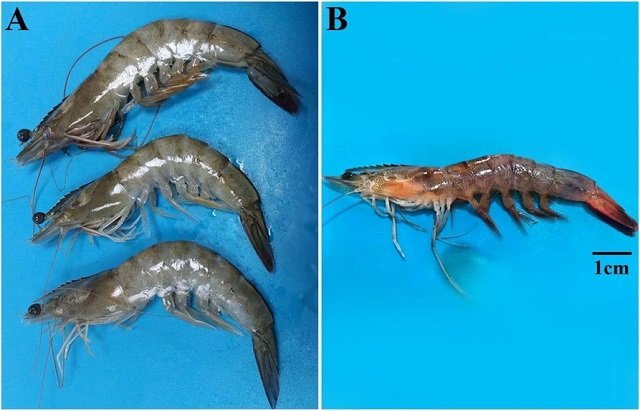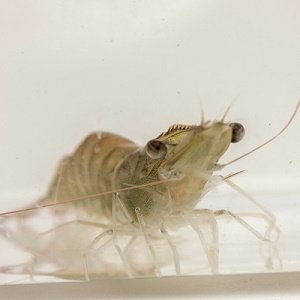
One promising avenue for identifying innovative solutions in tilapia aquaculture is the use of phytobiotics, natural compounds derived from plants with antimicrobial, antioxidant, and immunostimulant properties.
A recent study conducted by scientists from the National Institute of Oceanography and Fisheries (NIOF), Zagazig University, University of Karachi, Universiti Brunei Darussalam, King Saud University, and Arish University explored the potential of phytobiotics to enhance the health and resilience of Nile tilapia (Oreochromis niloticus). Researchers examined the effects of dietary supplementation with three herbal extracts: lemon balm (Melissa officinalis), marjoram (Origanum majorana), and chamomile (Matricaria chamomilla).
Phytobiotics: A Natural Alternative
Phytobiotics offer a promising solution as plant-derived compounds with beneficial effects on animal health and performance. These natural substances present several advantages over traditional chemical treatments, including:
- Improved Fish Health: Phytobiotics can boost the immune system, enhance disease resistance, and improve overall fish health.
- Enhanced Growth Performance: These compounds can optimize nutrient absorption, resulting in better growth rates and feed efficiency.
- Reduced Environmental Impact: Phytobiotics are biodegradable and have minimal negative effects on the environment.
- Lower Risk of Antibiotic Resistance: By reducing reliance on antibiotics, phytobiotics help mitigate the issue of antibiotic resistance.
The Power of Herbs
Three specific herbs—Matricaria chamomilla (chamomile), Melissa officinalis (lemon balm), and Origanum majorana (marjoram)—have shown particular promise in aquaculture. These herbs contain bioactive compounds that can:
- Stimulate the Immune System: Enhance fish capacity to fight infections.
- Improve Digestion: Optimize nutrient absorption and growth.
- Reduce Oxidative Stress: Protect fish cells from damage.
- Inhibit Bacterial Growth: Combat harmful pathogens like Edwardsiella tarda.
The Experiment
The trial involved three herbal extracts: lemon balm (Melissa officinalis), marjoram (Origanum majorana), and chamomile (Matricaria chamomilla). Treated groups were compared with control groups, including a positive control (0% water exchange) and a negative control (20% daily water exchange).
Fish were cultured at a stocking density of 20 fish per cubic meter, with a biomass of 1.8 kilograms per cubic meter. Water quality was monitored, and clinical responses, growth, and immune parameters were assessed. Additionally, herb-supplemented fish were challenged with a pathogenic strain of Edwardsiella tarda, and mortality rates were recorded.
Key Findings
The study revealed several significant findings:
- Improved Growth Performance: Fish supplemented with herbal extracts exhibited better growth performance, including increased weight gain and improved feed conversion rates, compared to the positive control group.
- Enhanced Immune Response: Herb-treated fish demonstrated strong immune responses, as indicated by elevated immune parameters. This suggests that phytobiotics can stimulate the immune system, making fish more resistant to diseases.
- Greater Disease Resistance: When exposed to the pathogenic bacteria Edwardsiella tarda, herb-treated fish showed significantly higher survival rates than control groups, indicating enhanced infection-fighting capacity.
- Stress Tolerance: The study found that phytobiotic supplementation helped fish cope with stressful conditions such as poor water quality and high stocking densities. Herbal extracts appeared to mitigate the negative impacts of these stressors on fish health and performance.
Implications for Tilapia Aquaculture
These findings have important implications for sustainable aquaculture. By incorporating phytobiotics into fish diets, it is possible to reduce reliance on synthetic chemicals and antibiotics, which can have detrimental effects on the environment and human health. Furthermore, phytobiotics can improve the overall health and welfare of fish, leading to better production efficiency and product quality.
As the aquaculture industry continues to grow, it is essential to adopt sustainable practices that minimize environmental impact and ensure food security. Phytobiotics offer a promising solution to these challenges. By harnessing the power of nature, we can create a more sustainable and resilient aquaculture sector.
Stay Always Informed
Join our communities to instantly receive the most important news, reports, and analysis from the aquaculture industry.
Conclusion
This study demonstrates the potential of phytobiotics as a sustainable and environmentally friendly alternative to traditional feed supplements in aquaculture. The results suggest that herbal extracts can enhance fish growth, survival rates, and disease resistance, even under stressful conditions. However, further research is needed to fully understand the effects of phytobiotics on fish health and to optimize their use in aquaculture.
Reference (open access)
Fadel, A., Metwally, M. M., Hassan, H. U., Abdelmageed, A. A., Arai, T., Ahmed, M. Z., & A., M. F. (2024). Growth, immunomodulatory, histopathological, and antibacterial effects of phytobiotic-incorporated diets on Oreochromis niloticus in unchanged water. Frontiers in Marine Science, 11, 1473053. https://doi.org/10.3389/fmars.2024.1473053
Editor at the digital magazine AquaHoy. He holds a degree in Aquaculture Biology from the National University of Santa (UNS) and a Master’s degree in Science and Innovation Management from the Polytechnic University of Valencia, with postgraduate diplomas in Business Innovation and Innovation Management. He possesses extensive experience in the aquaculture and fisheries sector, having led the Fisheries Innovation Unit of the National Program for Innovation in Fisheries and Aquaculture (PNIPA). He has served as a senior consultant in technology watch, an innovation project formulator and advisor, and a lecturer at UNS. He is a member of the Peruvian College of Biologists and was recognized by the World Aquaculture Society (WAS) in 2016 for his contribution to aquaculture.







